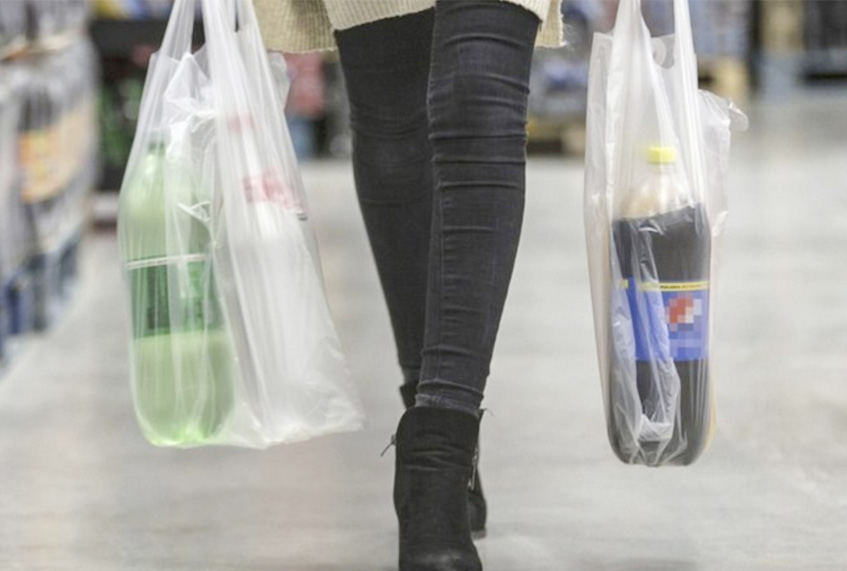Directive 94/62/EC of the European Parliament and of the Council (4) has been adopted to prevent or reduce the effects of packaging and packaging waste on the environment. Consumption of plastic carrier bags results in high levels of garbage and underutilization of resources and is expected to increase if no action is taken. However, garbage disposal of plastic carrier bags contributes to the problem of environmental pollution. In addition, the accumulation of plastic carrier bags in the environment clearly has a negative impact on certain branches of the economy, such as tourism. Lightweight plastic carrier bags with a thickness of less than 50 microns, representing the vast majority of the total number of plastic carrier bags consumed together, are less reused and thus waste faster than thicker plastic carrier bags. Because they are more litter-prone and lighter, they are more likely to be dispersed in the environment, both on land and in freshwater and marine ecosystems. Even though plastic carrier bags are recyclable, current recycling rates are very low. In addition, there is no separate collection for plastic carrier bags, they are costly to transport and require large amounts of water to wash for recycling. Recycling plastic carrier bags therefore does not solve the problems they cause.
WHAT HAPPENS IF THE USE OF PLASTIC BAGS INCREASE?
- Consumption of plastic carrier bags results in high levels of garbage and underutilization of resources.
- It exacerbates the widespread problem of marine litter that threatens shipping in water bodies by threatening aquatic ecosystems around the world.
- Because they are light, they are more likely to be dispersed in the environment, both on land and in freshwater and marine ecosystems, thus harming marine life.
- It causes governments to spend a lot to clean the unnecessary bags that accumulate in the environment.
- Recycling plastic bags requires a large amount of water.
WHAT SHOULD WE DO?
- According to the hierarchy of waste, prevention comes first, so first of all, we as citizens should prevent the increase in the use of plastic bags.
- We should use 100% recyclable and washable tote bags instead of plastic bags.
- Companies should be encouraged not to provide free plastic carrier bags to their customers at the point of sale of goods or products, and they should be directed to tote bags.
- The harms of the use of plastic bags should be explained in places such as television, radio, newspaper, website, where the public will constantly receive information.
According to the hierarchy of waste, prevention comes first. Therefore, an EU-wide reduction target has been defined. Waste management infrastructure – especially recycling – should be expanded to ensure that the needed plastic bag, bags will not be released into the environment, and consumers should be informed about proper waste disposal. The available data on the use of plastic carrier bags in the Union clearly shows that consumption is low or declining in Member States where they cannot use plastic carrier bags free of charge but instead subject to a small payment. In cases where the use of plastic carrying bags needs to be reduced, nature-friendly 100% recyclable tote bags should be preferred, which is the best alternative to use. Educational programs for consumers in general, and children in particular, should play a special role in reducing the use of plastic bags. These training programs should be implemented by manufacturers and retailers both in the Member States and at the point of sale of goods and products.
Measures to reduce the consumption of plastic carrier bags should lead to a sustained reduction in the consumption of lightweight plastic carrier bags and not to an overall increase in packaging production.

Love The Nature -
Reduce Use Plastic Bag05.08.2021